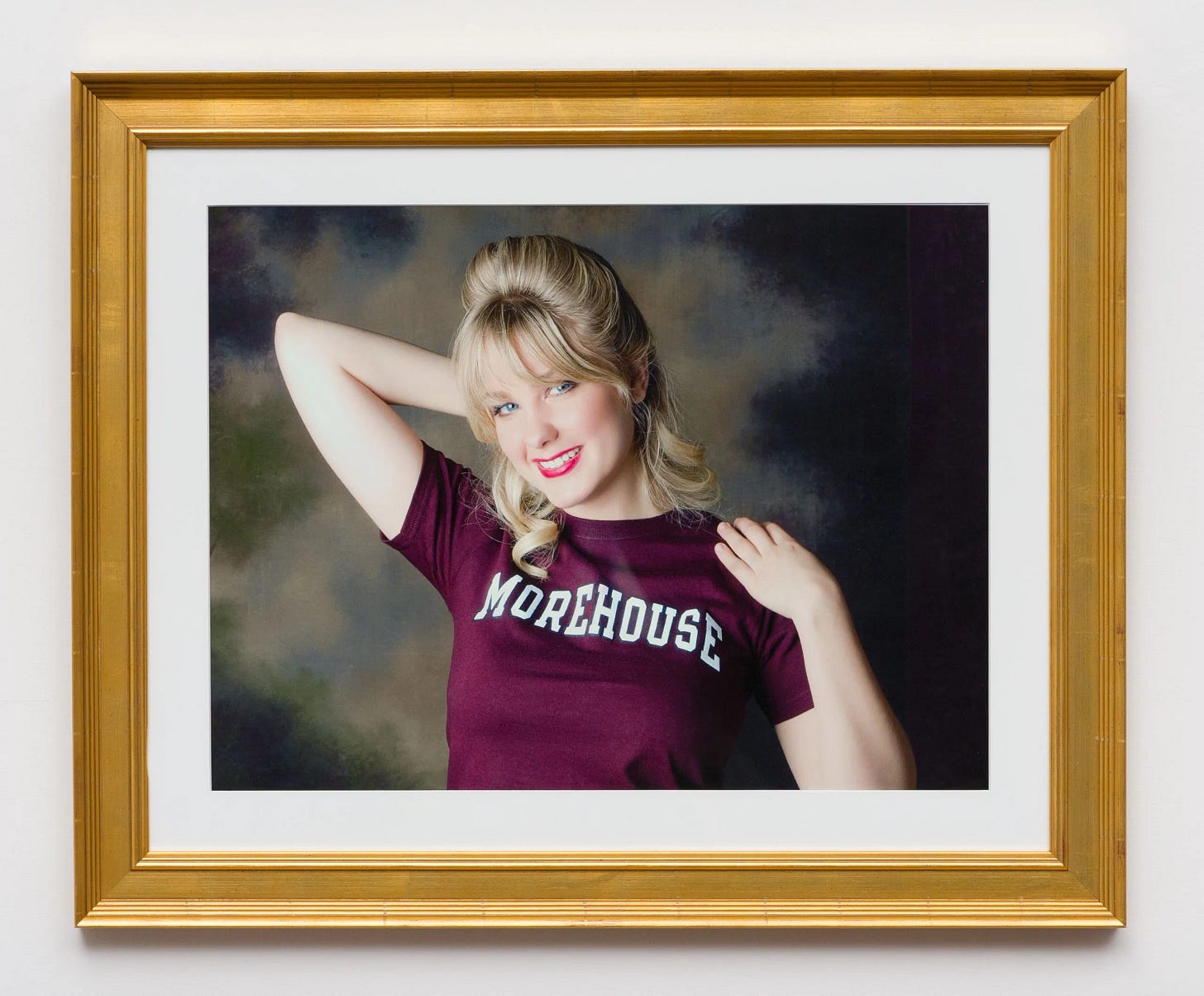Are you watching Atlanta? You should. I don't think it is as good as the first two seasons, but it does provide some interesting discourse. With Paperboy and the team visiting Europe, it offers a candid reflection on the place I call home, Amsterdam. However, the most striking episode to me is episode 9, the penultimate chapter of the season, called: Rich Wigga Poor Wigga.
Episode 9 is written and directed by Donald Glover and stars Tyriq Withers as Aaron. Aaron is a biracial high school senior who passes as white. He tries to be white. But the episode shows us that Aaron struggles with his racial identity, using his white appearance to assimilate to whiteness at school.
When I decided to start this Substack, I had just seen the movie Passing, A 2021 Netflix movie directed by Rebecca Hall, which is thematically and aesthetically very close to this episode. Although the story takes place nearly 100 years before Rich Wigga Poor Wigga, both stories tackle the concept of passing and social acceptance. Both are drenched in subdued, monochrome black and white images, and both show internally struggling, troubled characters.
This internal struggle is not unfamiliar to me. Racial ambiguity is a subject I'm personally invested in as someone who is white-passing myself. My mom is white. My dad is black. I was raised by my mom in a very diverse environment and have always felt a bit dazed and confused about my racial identity. Earl Sweatshirt put it best in his 2013 single Chum (a video that is also black and white) in the line: "Too black for the white kids and too white for the blacks."
Race, for someone like me, can be confusing. Very often, I've had to deal with second-hand racism. I've had people asking me for a photo of my dad to prove my blackness. Several people (both black and non-black) have encouraged me to use the N-word. And a few years ago, I discovered the term racial imposter syndrome.
I'm aware of my privileges as a white-passing cis-gendered man, and I've had advantages from my appearance that my brother probably hasn't (even though he's also very good looking). I'm aware of that. But the thing about being biracial, racially ambiguous, and white-passing is that there is a duality that seems incompatible. The world will constantly tell you that you cannot be both white and black. You have to choose or be nothing at all.
This message is echoed in both Passing and Rich Wigga poor Wigga. Both texts emphasize the (perceived) necessity to make a choice. The black and white filming implies that as well: as if there is no colour. The "solution" is found in fully embracing their blackness in both texts.
Both Passing and Rich Wigga Poor Wigga do wrong by claiming that there is something to solve. Both are written by black people, and their way of redeeming the struggling main characters is for them to embrace their blackness. But what if blackness doesn't embrace them? In my case, it would mean I'd have to identify as white based on my looks. My white parent raised me, my skin is light, I talk like a white person, and I'm also not dressed like a stereotypical black person. Still, my blackness is not gone. Still, I'm perceived as "other" in certain white crowds. Simply assimilating to either white or black, does not provide all the answers.
It is also a privilege to be identifiable. Just like it is a privilege always to hear the right pronouns. It would make life simpler. I don't want to have to explain who I am all the time. Although most of the time, the request for an explanation comes from myself.
Race is not a choice, not even for someone like me. The only answer to who we are is to embrace all of it, try to understand both, and negotiate the dominance of either one. Passing is not simply "passing." Maybe it requires new non-binary terminology. A post-racial identity. It might taste a bit too much like an internal all lives matter discourse, but much like this newsletter, I think I just need to find out as we go.




